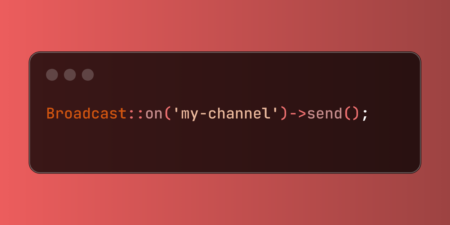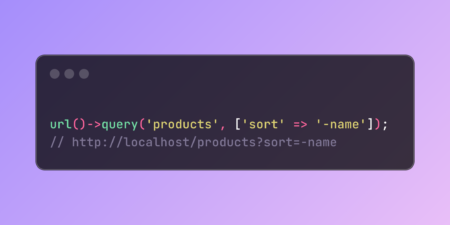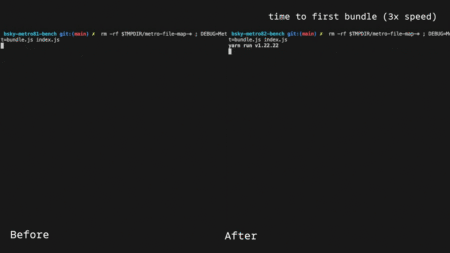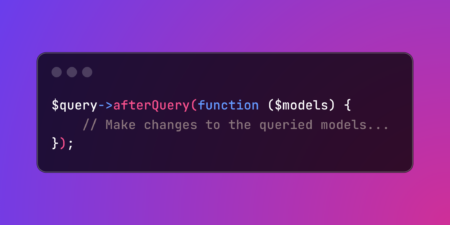Accelerate real-time feature development in Laravel with anonymous broadcasts that eliminate the need for dedicated event classes, offering a fluent…
Libraries & Frameworks
WhispPHP is a Pure PHP SSH server and the simplest way to build PHP SSH apps. The post Whisp is…
We did it. We finally did it. NativePHP for desktop v1.0.0 is finally here! The post NativePHP v1 is finally…
The Laravel team released v12.8.0, which includes automatic eager relation loading, creating a Collection instance from a JSON string, and…
Automation testing is essential in today’s software development. Most people know about tools like Selenium, Cypress, and Postman. But many don’t realize that Spring Boot can also be really useful for testing. Spring Boot, a popular Java framework, offers great features that testers can use for automating API tests, backend validations, setting up test data,
The post Spring Boot for Automation Testing: A Tester’s Guide appeared first on Codoid.
Enhance your Laravel application’s URL handling with the new query() method, providing a dedicated API for generating URLs with complex…
Laravel Unique provides a model trait to automatically append a value to model values that should be unique. The post…
The Laravel team released v12.7.0 recently, which includes two excellent new features: resource helper functions for models and a whereAttachedTo()…
Laravel package for handling resumable file uploads with tus protocol and native Uppy.js support without additional tus servers Source: Read…
Artificial intelligence (AI) is transforming software testing, especially in test case generation. Traditionally, creating test cases was time-consuming and manual, often leading to errors. As software becomes more complex, smarter and faster testing methods are essential. AI helps by using machine learning to automate test case creation, improving speed, accuracy, and overall software quality. Not
The post AI Generated Test Cases: How Good Are They? appeared first on Codoid.
The blog discusses why Workday testing is essential for smooth HR and finance operations, ensuring accuracy, compliance, and efficiency. It enhances user experience, improves data accuracy, and reduces compliance risks, making business processes more reliable and efficient.
The post Workday Testing: The Smart Move for Scalable Business Growth first appeared on TestingXperts.
Today we are excited to release React Native 0.79! This release ships with performance improvements on various fronts, as well…
Simplify your Eloquent queries with Laravel’s afterQuery() method, allowing you to define post-processing operations right alongside your query definitions for…
Screen is a terminal renderer written in pure PHP. It powers Solo for Laravel and can be used to build…
We sat down with Dave Hicking to talk about LaraJobs’ new section of articles and videos to help you advance…
The Laravel team released v12.6.0, which includes an Eloquent fillAndInsert() method, a URI path segments helper, a Password appliedRules() method,…
The blog discusses how retail automation transforms businesses by optimizing inventory, reducing errors, and enhancing customer experiences. From AI-driven fraud detection to seamless checkout solutions, automation boosts efficiency and profitability. This blog explores the top benefits and real-world use cases that help retailers stay competitive in the evolving digital landscape.
The post Top 5 Benefits of Retail Automation for Modern Business Success first appeared on TestingXperts.
Free & Open Source Invoice App for Individuals & Small Businesses. https://craterapp.com Source: Read MoreÂ
API testing is a crucial component of modern software development, as it ensures that backend services and integrations function correctly, reliably, and securely. With the increasing complexity of distributed systems and microservices, validating API responses, performance, and behavior has become more important than ever. The Karate framework simplifies this process by offering a powerful and
The post Karate Framework for Simplified API Test Automation appeared first on Codoid.
I don’t know if this is the right place to ask, but StackOverflow seems to only accept coding related questions, so this is the next best place I can find.
In UX Design, there is the concept of ‘deceptive pattern’ where the user can be intentionally led to do something that may be harmful to them without their knowledge. Of course, this surfaces as a design decision that is implemented in code and on the interface (which drives the user’s actions).
However, I read this example about Grammarly’s Browser Extension implementation, where some code is inserted without user knowledge that impacts the way the website or application behaves. So I wonder if there is an equivalent of this in coding (i.e. a deceptive programming) that can be picked up through normal software testing processes? Is this an area of research and practice in software QA?














